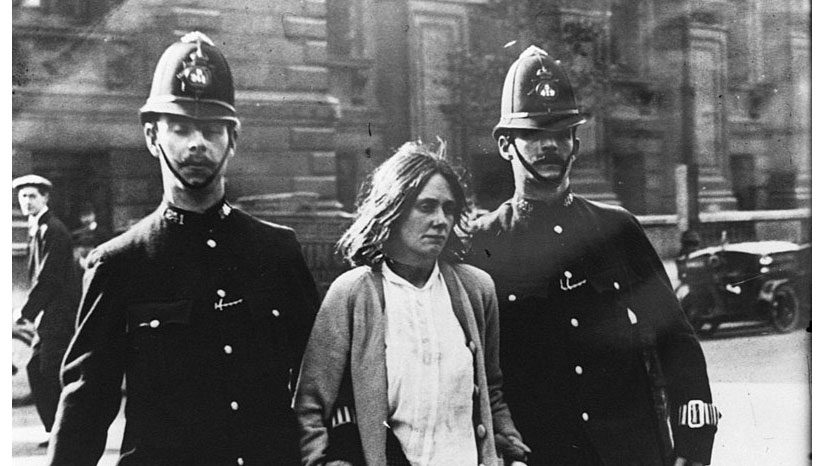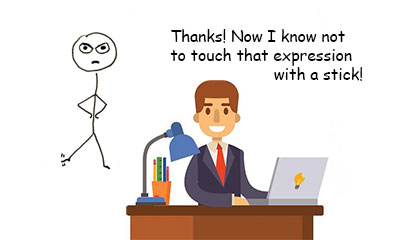
“Fun” fact: The expression “rule of thumb” has a sexist history related to an old law permitting men to beat their wives with a stick no thicker than their thumb. Does that give you pause before using the expression in casual conversation? No matter your thoughts on this question, it’s important to be aware of the historical meanings and cultural implications of words and expressions you use and make conscious choices about the ways you speak and write.
Over the past few years, I have some few posts about using language inclusively or exclusively, righteously or thoughtlessly. Specifically, I’ve written about using avoiding implicit racism in writing, making your writing more inclusive gender- and culture-wise, and using the singular “they” to avoid gender bias.
Get a free sample proofread and edit for your English document.
Two professional proofreaders will proofread and edit your English document.
Language is always changing to reflect material developments and changing ideas, so it’s important to frequently revisit and update use of words, expressions, and language structures that may convey meanings we don’t intend and that may alienate readers or listeners. In today’s post, I will discuss some more words and expressions you may want to leave out of your language due to their histories in racism or sexism.
Sexist Language
Perhaps this seems like a no-brainer, but you should avoid describing people using words and expressions that reinforce negative stereotypes, such as describing a woman as “hysterical” or “feisty” or using the idea of “acting like a woman” as an insult to a man. If using the same word or expression to describe their counterpart (e.g., a man for a woman, a rich person for a poor person, a White person for a person of color) sounds odd or doesn’t seem right, even if you can’t quite put your finger on why, that’s your inner “ism-meter” giving you a sign to change what you are saying or how you are saying it.
Some words describing actions are also based on stereotypes of women’s and men’s habits or characteristics, such as expressions like “man up” (to deal with a situation in a tough or brave manner), “grow a pair” (a pair of balls, also to behave with toughness), “don’t be such a girl” (avoid being cowardly or afraid), “boys will be boys” (it’s OK for males to do unacceptable things because they’re males), or having a “man flu” (a minor illness suffered dramatically). In these cases, simply opt for more neutral versions: “showing grit” instead of “manning up,” for example.
Racist Language
Some expressions may surprise you with their racist histories. For example, “Eskimo,” which is currently falling out of favor, comes from a word meaning “eater of raw flesh.” The word is also problematic because it was a word put upon indigenous Canadians and Alaskans by people European descent. “Inuit” and “Yupik” are what these people call themselves, though you do need to pay attention to which is which. See Merriam-Webster’s dictionary for more information.
To look at another group, certain English expressions have a legacy in anti-Irish attitudes. “Paddy wagon” is used to describe police cars/vans because “paddy” is slang for an Irish person, and though it was once fairly neutral and commonly used by Irish people themselves, it was taken on in the United States by non-Irish people and used in a derogatory way. Another word with an anti-Irish past is “hooligan” (trouble maker), which is thought to have been derived from the Irish last name Hoolihan.
Several common expression are new uses of terms stemming from slavery and anti-Black racism. “Sold down the river” means betraying someone, “master” means “main,” as in master bedroom and master-and-slave tech components, and (as Julia wrote earlier this month) “citizen’s arrest” comes from White people capturing runaway slaves.

Some expressions are based on mocking impersonations of nonnative English speakers. “Long time, no see” either comes from a direct translation of a Mandarin expression or from a similar expression used by a Native American character in an early twentieth century Western. “No can do” stems from nineteenth-century usage to mimic Chinese immigrants.
Some of the words and expressions discussed above may feel okay to you to use, and others may elicit a strong negative reaction in the majority. No matter where your opinion falls on individual items, in an effort to communicate mindfully and respectfully, it is critical to think about how language develops and to make choices that reflect values you support. Perhaps the rule to live by here is that if a word or expression will offend even a small minority of people, find another way to say it.
Sarah P.
Get a free sample proofread and edit for your English document.
Two professional proofreaders will proofread and edit your English document.
Get a free sample proofread and edit for your document.
Two professional proofreaders will proofread and edit your document.
We will get your free sample back in three to six hours!